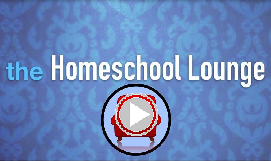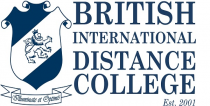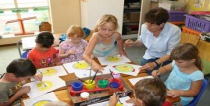Liberty in Learning
At some stage in the future, the Basic Education Law Amendment (BELA) Bill will be debated in parliament. This bill can have a severe impact on the freedom of parents to choose an education that is in the best interest of their children. The 400 Members of Parliament (MPs) will be required to vote on the proposed BELA Bill.
Most MPs probably know almost nothing about home education, and will cast a vote based on uninformed perceptions. Such a vote could be disastrous for the future of home education. Since homeschooling organisations do not have the capacity to reach 400 MPs, homeschooling parents are needed to reach out to these MPs and educate them on home education. The channel through which parents engage with MPs is through the constituency offices.
What are constituency offices?
South Africa’s electoral system is one of proportional representation, meaning that MPs and MPLs are not elected from geographic areas in the way that ward councillors are in local government elections. This does not mean that representatives are not expected to interact with the public. Parliament makes available to each party represented in Parliament a 'Political Party Constituency Allowance' and political parties must use these funds to operate constituency offices. These are about 350 Constituency Offices around the country where members of the public can approach elected representatives.
The Parliamentary Constituency Offices play a vital role in enabling the public to become active citizens and to take part in parliamentary activities. It creates opportunities for direct interaction with MPs, lobby representatives, get report-backs from MPs and advice on how to access services from both public and private sector establishments. The offices also offer assistance with challenges that face communities and in participating in the processes of Parliament, such as preparing submissions or drawing up and presenting petitions. MPs also attend Committee meetings, so that they can convey information about what happens there to the public.
To find constituency offices from various parties in your area, visit the parliament website.
To find to DA councillor and constituency head visit the website of the Democratic Alliance.
How to arrange a meeting?
Contact the constituency office in your area. There might be various constituency offices in your area, and you can choose the office of the political party with who you feel most comfortable to engage.
You can personally go and meet the MP at the constituency office, or you can arrange a meeting at a public place and get other homeschooling families to join you. Typical public places could be a town hall or a meeting room at a public library. Local authorities are obliged to make these facilities available for community activities.
To find homeschooling families in your area to join you, make use of the mailing lists or Facebook groups of support groups and forums here and here.
What should you discuss at such a meeting?
The Pestalozzi Trust has compiled a document that summarises the concerns of the homeschooling movement and what the we want from government. Download the document here. Feel free to print this document and distribute it as wide as possible. You can discuss the content of this document with the MP and hand him or her a copy.
However, more important is that homeschooling parents share their personal experiences of what home education meant to their families and their children with the MPs. If your children are older, you can bring them along and let them talk about what home education means to them.
Also give the MP and opportunity to explain what they do at parliament and what their thoughts are about education and parental involvement in education. Even if the MPs do not agree with your views on education, they will find it much more difficult to vote for a bill that can put homeschooling parents in jail for 6 years for not following the state curriculum after they have met real homeschooling families.
What to do at the end of the meeting?
It is important that you take a photo of the homeschooling parents and the MP and share this, together with a short report, on the BELA Bill Facebook group to encourage other parents to also meet with an MP in their constituency.
What can the effect of this campaign be?
It seems a daunting task to reach 400 MPs to swing the vote on BELA Bill. It must however be taken into account that political parties make decisions on how party parliamentarians should vote on legislation within a caucus. If a critical mass within the caucus of a political party can be persuaded to support home education, it can influence the vote of all the MPs in that party.
All members of a political party elected to parliament belong to their parties respective caucuses. The caucus meetings are held behind closed doors and it is where a party debates and forms a common position on an issue and a decision is taken on how the party should vote as a bloc. The most important recent caucus meeting was the famous ANC meeting to decide on the 'motion of no confidence' in ex-President Jacob Zuma. Therefore each and every parliamentarian can have an important influence in caucus. Home education is not an issue on which a large number of parliamentarians are informed therefore an informed MP who knows what questions to ask can have an out-sized influence.
Can meeting an MP lead to prosecution?
Some parents are concerned meeting an MP could lead the prosecution of homeschooling families. There are several reasons why this is extremely unlikely. Firstly prosecution is done by the executive branch of government, while MPs are in the legislative branch of government. Secondly department officials in the executive branch of government are very reluctant to prosecute citizens that state their case in public and engage with politicians. Thirdly there is no obligation of motivation for MPs to report homeschooling parents to department officials.
Events
Legal & Research
Centres
Homeschool ABC
Support
Curriculums
Sunrise readers: From pre-reading ...
Parents and educators - these popular reading books with an ...
Elroi Academy (Gr 8 - 12)
Elroi Academy – Top-Rated Distance Education Provider in South ...
Has no content to show!































